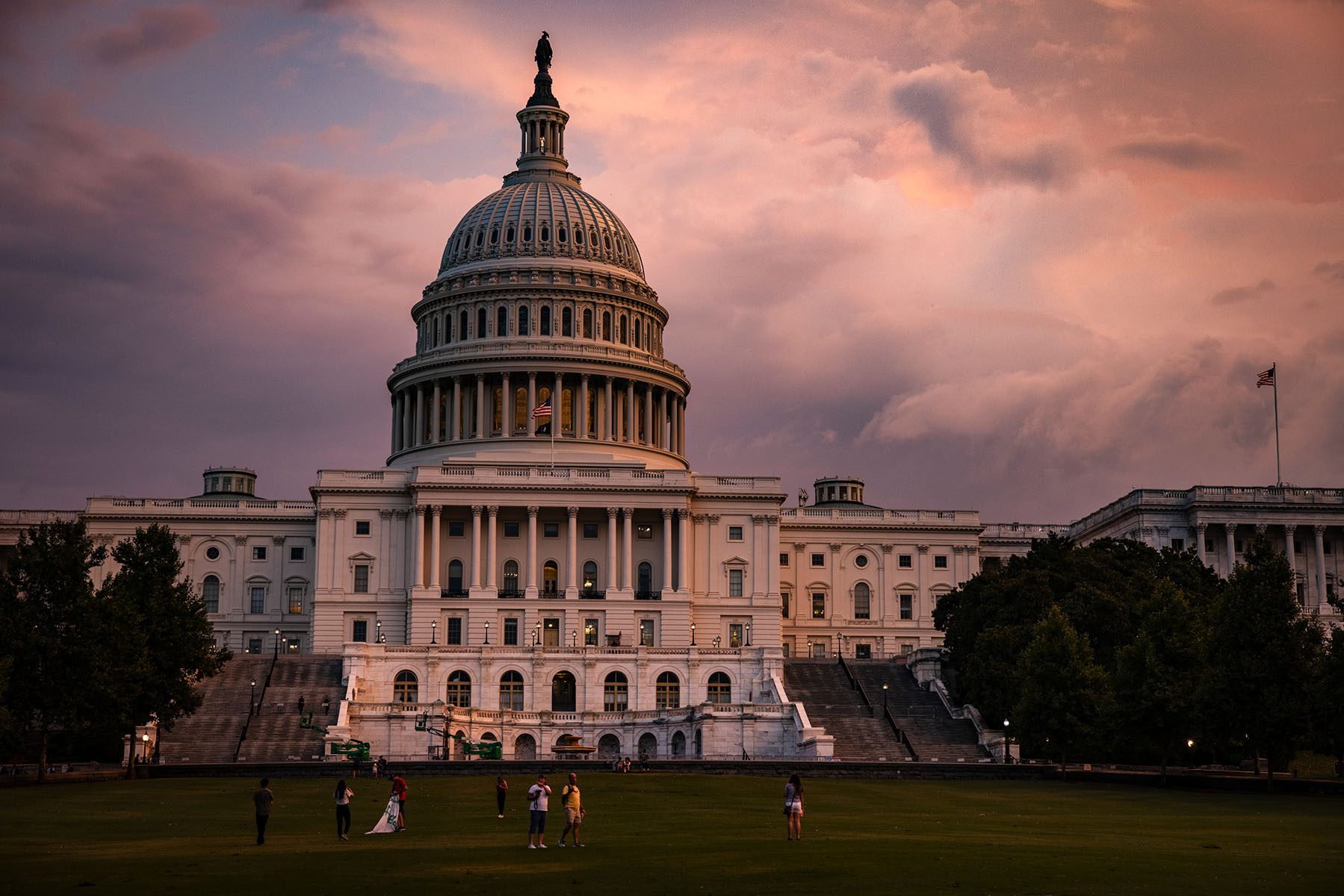This story will be updated throughout negotiations.
The House of Representatives on Friday approved President Joe Biden’s “Build Back Better” plan that would extend the expanded child tax credit established in the coronavirus relief package for one year, create universal and free preschool, subsidize child care for most families, and expand free school meals to millions of children.
Now, pressure shifts to the Senate, where Democrats are aiming to pass the sweeping legislation with no Republican votes in the evenly split chamber and cannot afford to lose the support of even one Democratic senator.
Though the current version of the Build Back Better plan is significantly whittled from the $3.5 trillion bill Democrats started with, the White House and other party leaders have said it would nonetheless be transformational for families if it becomes law.
“We spent hours and hours and hours, over months and months, working on this, and no one got everything they want, including me,” Biden said in remarks from the White House late last month, adding: “Compromise and consensus are the only way to get things done in a democracy.”
Some policies included in earlier versions were dropped from the bill due to some moderate lawmakers’ concerns about the overall cost, including two years of free community college and dental and vision benefits for Medicare recipients.
House Democrats added a four-week paid family and medical leave provision back into the bill over the objection of at least one Democratic senator.
Here are some of the Build Back Better provisions that could benefit women and LGBTQ+ people:
Paid family and medical leave
Originally, Biden’s Build Back Better plan would have provided 12 weeks of paid leave for all workers if they are new parents, recovering from a serious illness or injury, caring for a sick or injured family member, or handling caregiving issues related to a family member’s military deployment. In mid-October, Biden said they were considering trimming the proposal to four weeks. To bring cost down, negotiators were considering limiting it to leave for the birth or adoption of a child, not illness. Then, it was missing altogether from the framework released by the White House last month. House Democrats added a four-week family and medical leave provision back in, though it is unclear if it can pass the Senate with this provision.
More from The 19th:
- The push for paid family leave had stalled in America. Then men bought in. (August 2)
- Another case for paid family leave: Newborns’ brain development (August 27)
- Arizona women urge ‘not just Band-Aids’ as Democrats finalize Build Back Better (November 5)
- How Sen. Gillibrand and Meghan, the Duchess of Sussex, are trying to get paid leave passed (November 4)
More affordable child care and universal pre-kindergarten
Biden proposes spending about $400 billion to fully pay for preschool for 3- and 4-year-olds and limit child care costs to 7 percent of annual income for families earning up to 250 percent of the state median income. To be eligible for child care assistance, parents must be working, looking for work or dealing with a long-term illness. Both provisions would be funded for six years. This has been trimmed from the original proposal, which would have allotted $450 billion to cover child care on a sliding income scale for more families.
More from The 19th:
An extension of the expanded child tax credit
As part of a coronavirus relief package, Congress expanded the annual child tax credit in 2021 from $2,000 to $3,000 for children ages 6 to 17 and to $3,600 for children under the age of 6. It was also tweaked so the benefits were fully available to the poorest parents. Biden has proposed leaving the expanded credit in place for families earning up to $150,000 per year for one year. It will remain fully available to the lowest-income families indefinitely.
More from The 19th:
- Everything you need to know to get the child tax credit (June 21)
- As child tax credit payments reach families, moms see a road out of poverty (July 15)
- ’We are always excluded’: Kids with undocumented parents were supposed to get the child tax credit. Many still haven’t. (September 1)
Higher education
Biden’s original proposal would have authorized spending $111 billion on higher education, including covering two years of free community college. That provision has been cut. Biden’s latest framework includes $40 billion to expand Pell Grants and support Historically Black Colleges and Universities, Hispanic Serving Institutions and Tribal Colleges and Universities.
Closing the Medicaid coverage gap
Twelve states have not expanded the government’s Medicaid health insurance program for lower-income people and those with disabilities under the Affordable Care Act (ACA), and the Build Back Better Act proposed closing the gap by helping insure people who make too much money to qualify for Medicare but not enough to qualify for ACA subsidies.
Biden’s most recent framework would extend the expanded Premium Tax Credit, which the White House said would help reduce premiums for more than 9 million Americans and help 4 million uninsured people in states without the Medicaid expansion.
Expanded Medicare benefits
Initially the plan was to add dental, hearing and vision benefits to the Medicare insurance program for the elderly, with beneficiaries paying 20 percent in a cost-sharing arrangement. This has been trimmed to only hearing.
Home- and community-based care
Biden’s framework proposes spending $150 billion on home- and community-based care. This investment is designed to allow the elderly and disabled to remain in their homes, while creating better-paying jobs for people in the caregiving workforce, which is disproportionately made up of women.
The original Build Back Better plan proposed spending $400 billion, which CAP estimated would have created more than 700,000 jobs.
More from The 19th:
- Maggie Hassan makes a personal case for more caregiver funding in the reconciliation bill (September 27)
- The New Deal devalued home care workers. Advocates hope new legislation can undo that. (October 6)
- Protesters push Congress for home care funding: ‘If we get sick, we leave and no one backs us up’ (October 12)






